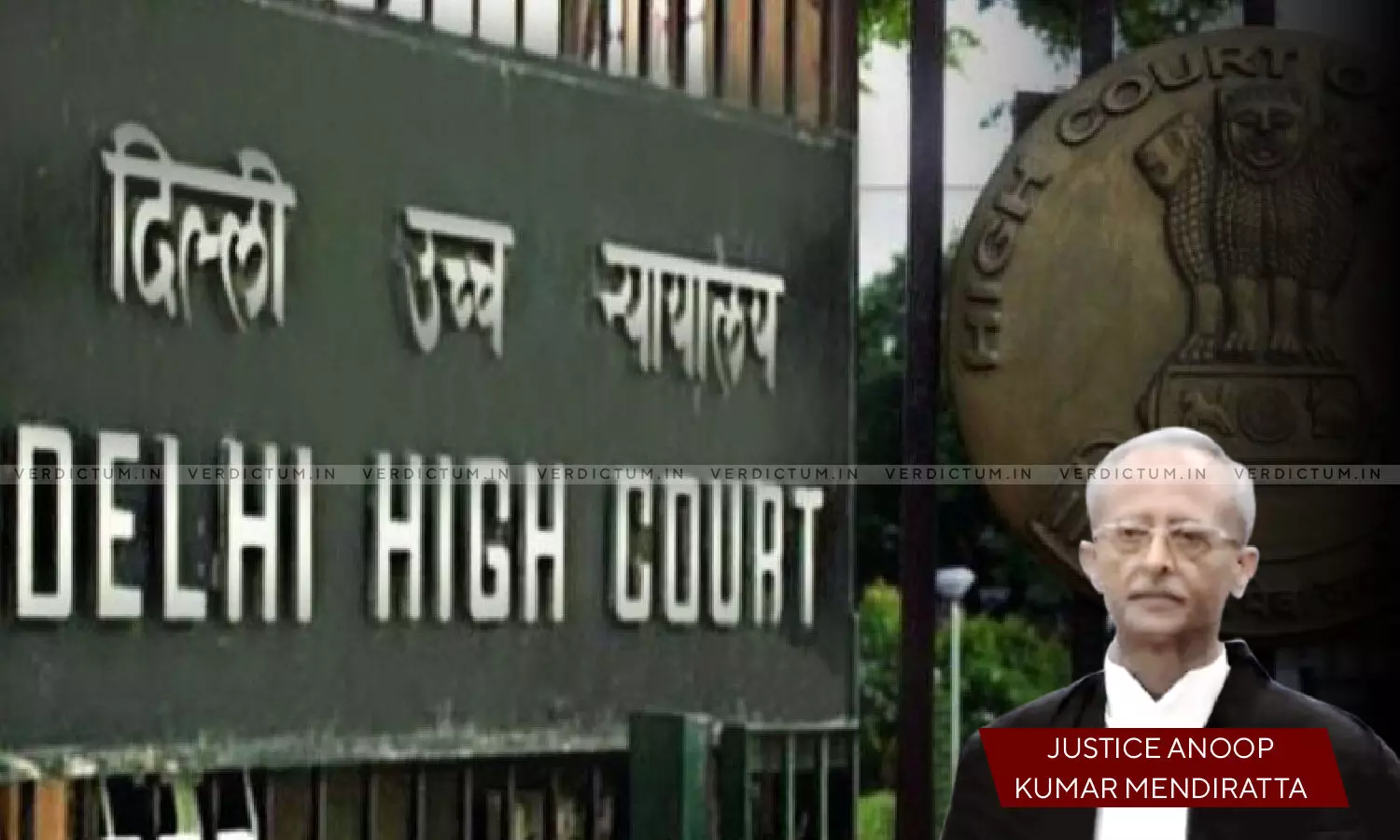
Locus Standi Can Be Looked Into By Magistrate If Complaint U/s. 156(3) Cr.P.C. Is Made On Behalf Of Another Person: Delhi High Court
 |
|The Delhi High Court held that Section 156(3) of the Cr.P.C. which empowers a Magistrate to direct the police to register a case and investigate cannot be abused by filing frivolous complaints wherein the victim has no grievance. The Court held that locus standi of the complainant, if made on behalf of another person can also be looked into by the Magistrate.
The Court remarked that merely alleging disclosure of a cognizable offence is not sufficient to issue directions under Section 156(3) Cr.P.C. if the same lacks credibility and is bereft of necessary details as to the time and date of commission of an offence and appears to be perverted litigation.
A Single Bench of Justice Anoop Kumar Mendiratta observed, “Any such allegation of rape not only puts a question mark on dignity of “X‟ but also may lead to harassment and affect reputation and life of another person. The Action Taken Report by Police cannot be brushed aside lightly. Having received the communication from the complainant that no such incident had occurred, the police rightly exercised the discretion to not to register the FIR as it would have been a futile exercise”
Advocate V.V. Joy represented the petitioner, while PP V. Sreeja appeared for the respondents.
The petitioner had filed an application under Section 156(3) Cr.P.C before the session court. In this application, it was alleged that the petitioner’s wife had disclosed that she was raped by her cousin when she was about 16 years of age.
Upon reviewing the Action Taken Report, it was found that the wife denied the petitioner's complaint, asserting that he had physically harassed her for dowry. There were ongoing legal proceedings, including domestic violence, maintenance, and divorce cases before various forums. The wife stated that the petitioner wanted to defame her.
The sessions court declined to exercise powers under Section 156(3) Cr.P.C. for ordering the investigation and registration of an FIR. The petitioner then filed a petition before the High Court under section 482 of the CrPC to quash the order of the sessions court.
The High Court pointed out that merely because a piece of information was allegedly disclosed by the wife regarding commission of an offence to the petitioner, it cannot give rise to the cause of action when the wife herself has categorically denied any such offence having been committed by her cousin.
The Court explained that when an application under Section 156(3) Cr.P.C. is filed, the Magistrate is empowered to verify the complaint's veracity and ensure it is not filed with motives to harass a person or settle the scores. The power to direct investigation under Section 156(3) is crucial, taking away the discretion of the Police Officer under Section 157(1)(b) to decide whether to investigate or not.
The Court noted, “The application of judicial mind by the MM while exercising power under Section 156(3) Cr.P.C. is of utmost importance not only to assess the disclosure of commission of cognizable offence but to rule out the possibility of harassment by unscrupulous elements by making bald allegations.”
The Court held that the petitioner did not have locus standi to file the complaint in the face of denial by his wife of any alleged offence to have been committed. The petitioner, a practising Advocate at Saket District Court, initiated the proceedings with the oblique motive of gaining advantage in other proceedings against his wife. "The locus standi of the complainant, if made on behalf of another person can also be looked into by the Magistrate and he has to be satisfied as to the need of investigation in the matter", the Court held.
Accordingly, the High Court dismissed the petition and imposed a cost of twenty-five thousand rupees on the petitioner.
Cause Title: Sanjeev Kumar v. State of NCT of Delhi & Ors (2024-DHC-487)